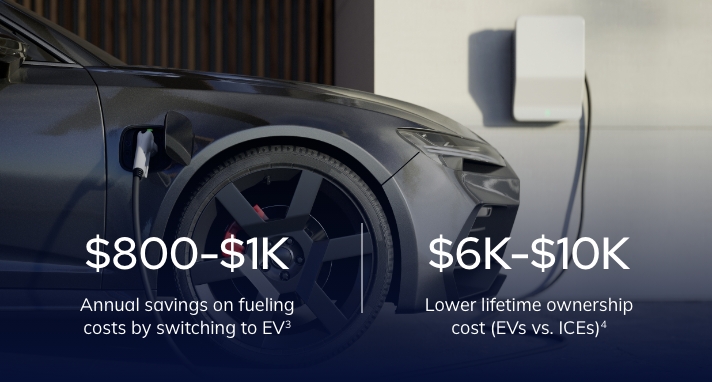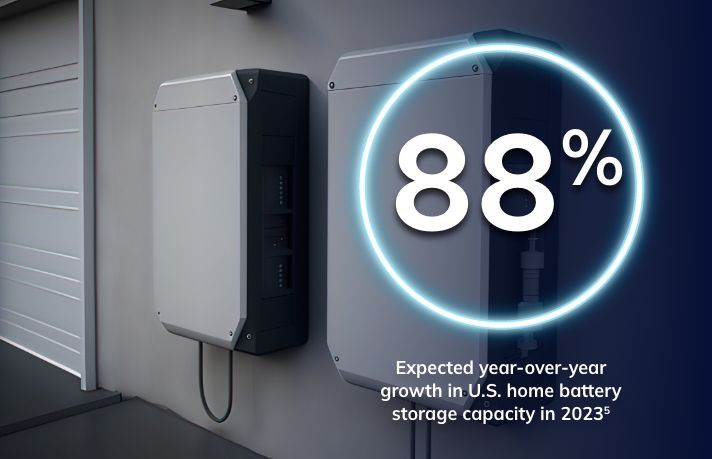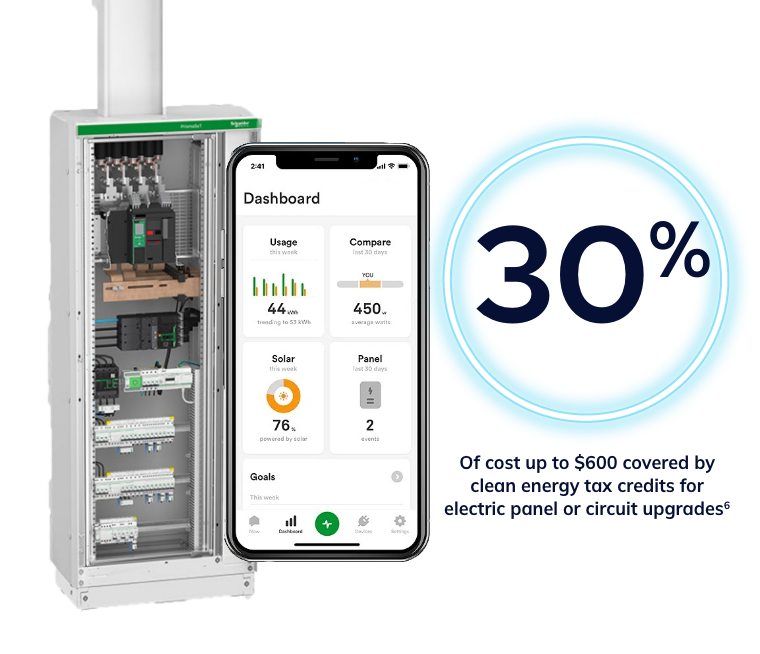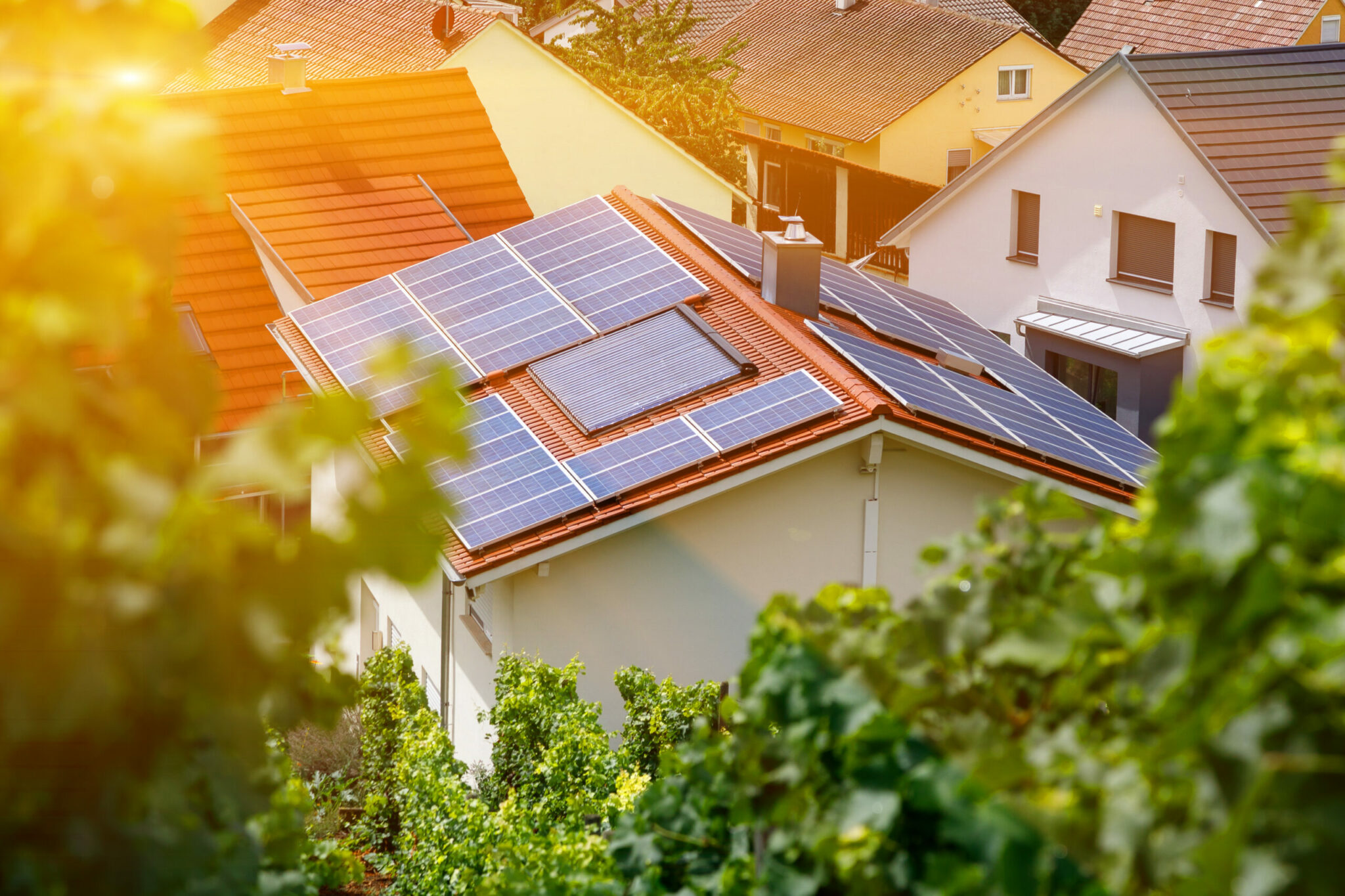What are the financial advantages of electrification?
Switching to alternative power sources and energy-efficient electric solutions is a smart move for budget-conscious homeowners. Public incentives help with the upfront costs—and over the long term, these technologies save you money in many different ways.
EVs: Zero Emissions, Big Savings.
Incentives & Rebates
Even though the purchase price of an EV is generally higher than its gas counterpart—a margin that is expected to become smaller as technology improves—federal and state tax incentives can help offset the cost. Federal incentives available for qualified households through the Inflation Reduction Act1 include up to:
- $7,500 for new EVs that meet specific criteria
- $4,000 for previously owned EVs
EV drivers can also receive a federal tax credit for purchasing and installing home charging equipment. Many EV makers, including various Qmerit partners, cover all or part of the charging installation costs for their customers. Additional incentives are available from some states and local electric utility companies to help offset that expense.
Your utility may also offer rebates, grants, loans, and support services for home charging stations—as well as modified billing rates for EV charging, such as time-of-use (TOU) rates. All of these programs are designed to encourage homeowners to make the switch to EVs.
Lower Fueling & Maintenance Costs
From a lifetime-cost-of-ownership perspective, studies have shown that internal combustion engine (ICE) vehicles are substantially more expensive than comparable EVs—even for five- to seven-year-old models. For one thing, an electric motor is mechanically much simpler than a gas-powered engine, and as such has fewer maintenance needs. With an EV, you’ll never need another expensive scheduled maintenance service like an oil change or transmission flush.
EV owners also save on fueling costs. According to the Natural Resources Defense Council (NRDC), it’s less expensive to fuel an EV simply because it runs on electricity rather than gasoline. A typical EV owner using a home charger can save roughly 60% on fueling versus an equivalent gas-powered vehicle.2

Harnessing the Sun to Cut Energy Costs
Solar Power Savings Opportunities
Rooftop solar panels convert sunlight directly into electricity which can be used to power your home, essentially for free. In areas where net metering is available, excess electricity generated by solar panels can be sent back to the grid to earn homeowners a credit on their electric bill.
Solar power can even be used to heat water in the home. Solar water heaters—also known as solar domestic hot water systems—capture retaining heat from the sun to warm up circulating water stored in insulated tanks.
What if my roof isn’t suitable for solar panels?
Even homeowners who can’t implement solar panels may be able to benefit by participating in community solar projects. These programs allow homeowners to reap the financial rewards of solar power without installing equipment on their property.
Saving Energy (Literally) with Battery Storage
Store Power to Use When It Makes the Most Sense
A battery energy storage system (also referred to as a power storage system or battery bank) offers homeowners both energy security and additional savings. These large-capacity rechargeable batteries (usually lithium ion) store power supplied either by the public grid, solar panels, or electric vehicles equipped with bidirectional charging capabilities.
Homeowners gain the option of deciding when to be on or off the grid, reducing their electricity costs. They can also receive tax credits and other rebates for installation and usage—plus a battery energy storage system can increase property values.
Some states and utilities also offer energy storage rebates and incentives to homeowners who install qualified battery storage systems, such as time-of-use rates that allow systems to be charged when rates are lower. Then, during peak demand times when rates are higher, homeowners can use that stored energy rather than pay the utility company for it.

Using Energy More Intelligently with a Smart Panel
Get Wise to Potential Savings Opportunities
A smart electrical panel can be considered the brains of a home’s power system. It monitors the performance of all connected household circuits, and can seamlessly switch from the public grid to alternate power sources such as rooftop solar panels or a battery storage system. That allows homeowners to reduce draw during peak rate times, or when a power outage occurs—preventing food spoilage and other costly damage.
A smart panel also enables homeowners to isolate specific circuits, turning them on or off as needed as well as prioritizing or scheduling them. When paired with a smartphone app, a smart panel gives homeowners more insight into—and control over—their energy use, which can help lower utility costs. In addition to that direct benefit, homeowners can take advantage of federal tax credits and incentives and rebates from their state and local utility providers.

Schneider Electric’s Square D Energy Center Smart Panel


